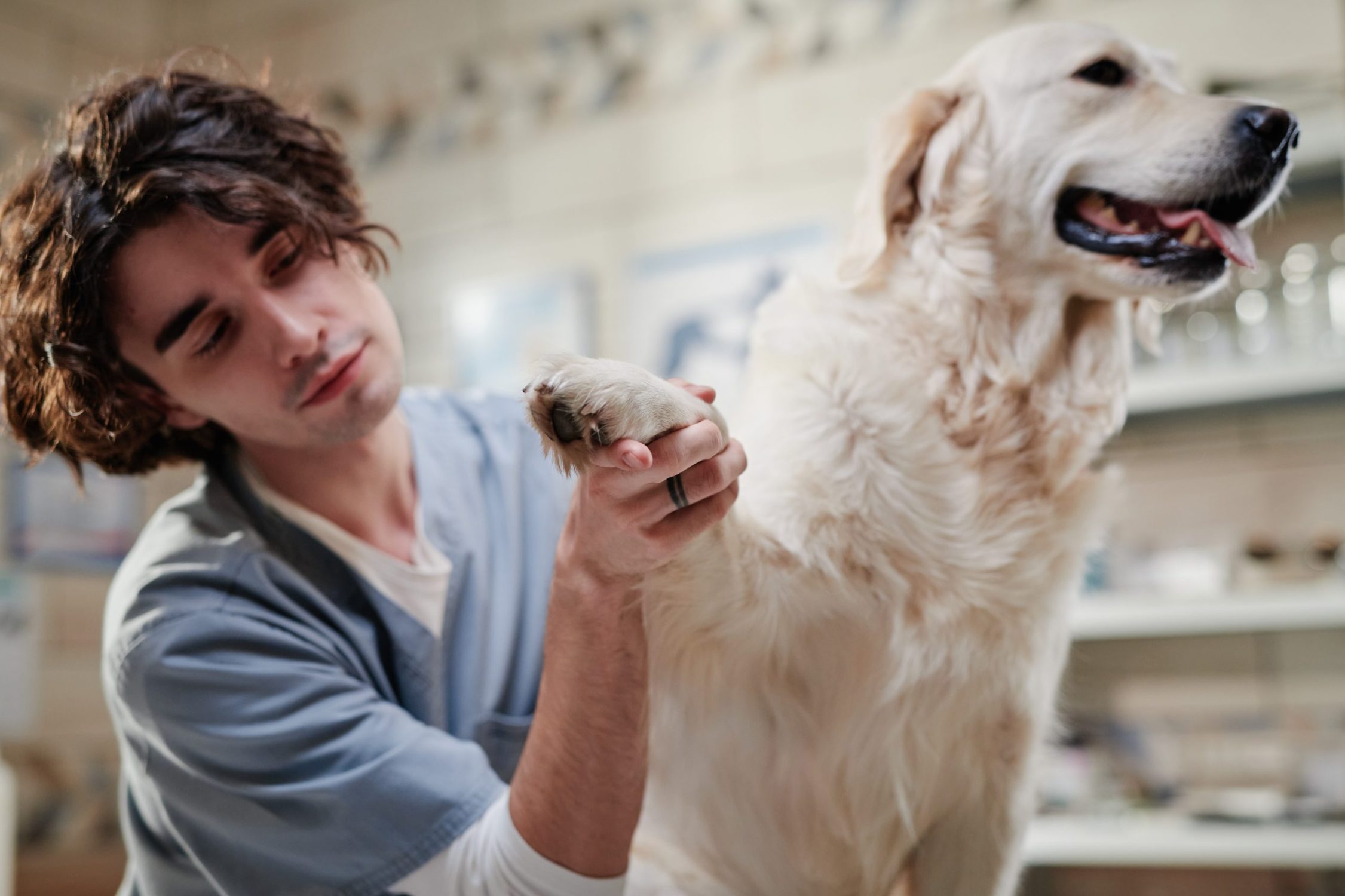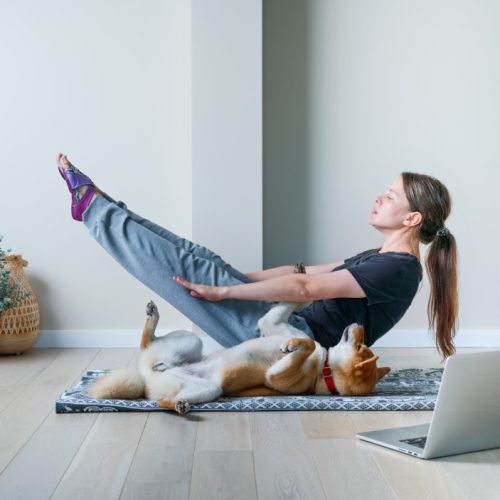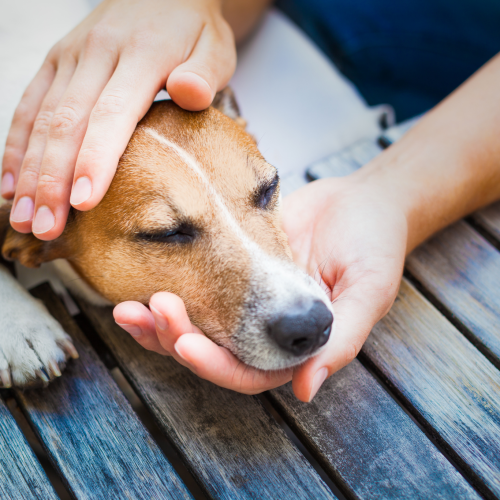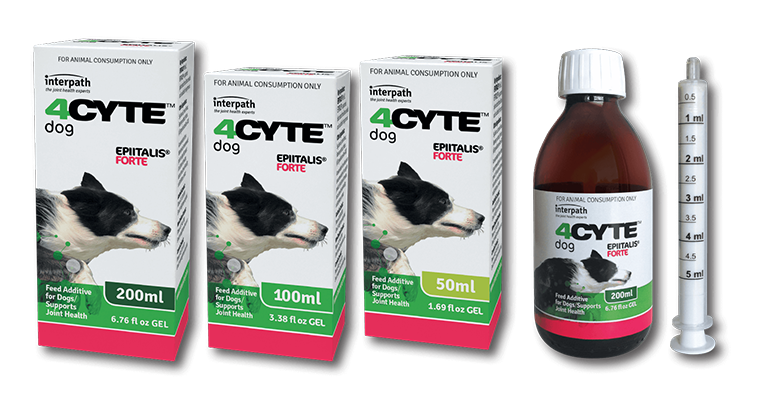Arthritis in Pets: Is Your Companion in Pain?
Like humans, our pets can also suffer from arthritis as they age. Arthritis is a common condition that causes pain and stiffness in the joints, preventing your pet from moving and playing as it once did.
Did you know?
- Arthritis affects approximately 25% of our pet dog population
- This increases to 50% of ALL dogs aged over 7 years
- It is estimated that 55% of arthritis pain goes untreated
- Up to 90% of older cats suffer from arthritis
- Arthritis can be present long before our pets begin to show any symptoms
While arthritis is a natural part of the ageing process, there are things you can do to help keep your pet comfortable and pain-free. In this post, we’ll explore what arthritis is, the symptoms to look out for and how you can help your furry friend feel better.

What Is Arthritis in Cats & Dogs?
Cartilage covers the ends of our pet’s bones and acts as a ‘shock absorber’ when they move, while joint fluid assists with lubrication of the joint. The cartilage and joint fluid are continually regenerated to ensure pain-free mobility.
Degenerative joint disease or Arthritis is a broad term used to describe changes to the normal components of a healthy joint – specifically changes to the quality and quantity of cartilage and joint fluid. Put simply, it is inflammation of the joints and can be caused by disease, poor structure or development (e.g. hip dysplasia), unusual gait, conformation, extra weight gain, or joint trauma or surgery.
Thus, Arthritis in pets will occur when this normal regeneration process is compromised resulting in the cartilage becoming thinner and more brittle causing the bones in the joint to rub together. This can cause symptoms ranging from mild discomfort to severe pain with obvious lameness.
Symptoms of Arthritis In Pets
There are a number of signs to indicate that your dog or cat may be suffering from arthritis.
- Stiffness or slowness when getting up or down, or after resting
- Difficulty going up and/or downstairs, reluctance to jump for cats
- Decreased activity or resistance to exercise
- Dragging back legs, worn toenails or decline in grooming for cats
- If enough damage has occurred, a grating sound can be heard during joint movement
Generally, the pain with Arthritis is heightened after resting, exuberant exercise or cold weather. If you are unsure if your pet has arthritis, speak to one of our friendly vets today. We are able to assess your pet, provide diagnoses and provide pain relief options that will help improve your pet’s quality of life.



Managing Arthritis in Pets
Unfortunately, Arthritis can’t be cured. Arthritis management is typically aimed at slowing the progression of the disease while ensuring our pets remain as comfortable as possible.
At The House Call Vet, we believe that early intervention is important in managing arthritis. Typically the longer it is left untreated, the more obvious the symptoms are and the more difficult it is to provide relief.
There are a range of arthritis treatments that can help bring relief and quality back into your pets day to day life. These treatments often encompass a range of lifestyle changes, ‘at-home’ care and veterinary medical support.
In order to manage the inflammation within the joints The House Call Vets recommends a focused plan:
Weight Management
One of the most common contributors to arthritis is excess weight as the extra weight adds pressure on your dog’s already affected joints. Weight control is essential when it comes to managing Arthritis symptoms and slowing the progression of the disease.
We also recommend this course of action for pets such as cats and dogs who are at risk of developing arthritis due to factors such as breed, age or pets that have a history of joint trauma or surgery.
If you think your pet may be overweight, it’s best to get in touch with us early so that we can get the scales moving back in the right direction!
Physiotherapy, Hydrotherapy and Exercise
Walking and swimming are fantastic forms of exercise help keep our pets active and their joints healthy. Regular gentle exercise is the best way to support muscle strength while keeping the joints moving.
The level of exercise your pet can endure should be assessed on a case-by-case basis. However, regular short bursts of exercise are usually the best approach as this ensures they stay active without exerting too much pressure on their joints.
If you’re not sure what exercises are best for your pet, our team at The House Call Vet can devise an individualised program to help maintain mobility and reduce pain levels.
Supplements
There are a number of supplements available that can help relieve pain and inflammation in arthritic pets. 4cyte is a new generation dietary supplement that contains the traditional joint ‘building blocks’ as well as a newer ingredient – Epitalis, a conifer seed oil that t is proven to generate new cartilage in an arthritic joint.
Additionally, 4cyte contains Green-Lipped Mussel extract, which has been demonstrated to offer potent pain relief after 8 weeks of continuous use. 4cyte is palatable to most pets and can easily be added to food. It is a great option for all stages of arthritis management although has the most benefit in mild to moderate cases.

Bedding & Warmth
Soft, warm, comfortable bedding is important, especially during the cooler months. This can help alleviate the stiffness associated with arthritis as it provides a soft surface that cushions the body.
Making Your Home Accessible
There are many things we can do around our home to make it more accessible for our arthritic pets. Elevating the food and water bowls can be a huge relief for pets suffering from neck, shoulder or elbow arthritis. Using non-slip matting and ramps around the house is another great way to help elderly pets get around. Similarly, simply keeping our pet’s nails trimmed can assist them when rising or walking on slippery surfaces such as floorboards or tiles.
Pet Massage
Pet massage is a fantastic way to show your furry friend some extra love while also providing relief from pain. Massage can increase mobility and blood flow, help relax muscles and tendons as well as release endorphins that act as the body’s natural painkillers.
You can gently knead your pet’s rigid muscles (avoid placing direct pressure on your pet’s joints, which may be painful) or arrange a consultation with a licensed pet massage therapist who can take care of your pet.
Arthritis Injections
Arthritis injections are used to help support joint fluid while slowing the progression of the disease. A course of 4 injections one week apart is used initially which is then followed by repeat injections every 3-6 months depending on how your pet is progressing.
It is often a good idea to treat your pet in the lead-up to the cooler winter months. These arthritis injections can be useful for any stage of arthritis management. If you want to learn more about this form of treatment, please don’t hesitate to get in touch.
Pain Relief Medications
Just like us, in some cases of arthritis, a course of pain-relieving anti-inflammatory medication, after diagnosis or for flare-ups, may be required. Although safe, this treatment is only used in tandem with arthritis injections, lifestyle changes and food supplements.

Need Help Managing Your Pet's Pain?
Arthritis is a common condition that affects our ageing pets. Often, the first signs are subtle and may go unnoticed. If you think your pet may be showing signs of arthritis, taking your pet to the vet is an important first step.
If you looking to manage your pet’s pain, we can help! The House Call Vet is a leading veterinary service that are passionate about providing superior arthritis care. We offer both at-home and in-clinic consultations to cater to your pet’s needs. Our services include pain assessments, weight management plans, as well as access to the latest arthritis treatments and supplements

